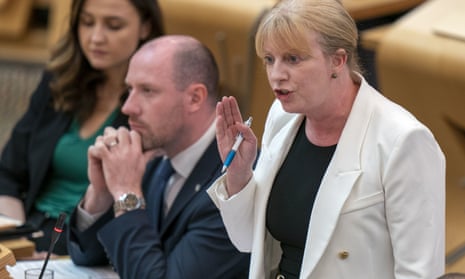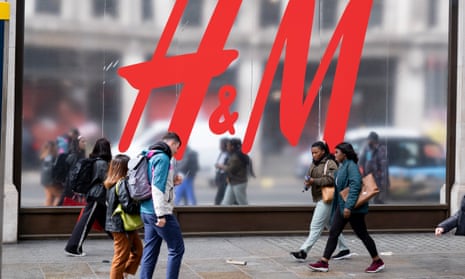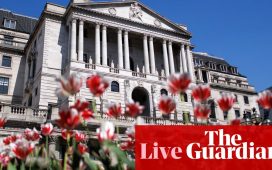UK business growth rises to six-month high – PMI
The UK has fared better.
Business output growth edged up to a six-month high in December, led by a faster recovery in the service economy while factories continued to cut back production, according to the latest flash estimate from the S&P Global / CIPS purchasing managers’ index (PMI) survey. It said:
UK private sector output expanded for the second month running in December, which continued a modest recovery from the downturn seen during the three months to October. Higher levels of business activity were supported by a renewed improvement in order books, alongside efforts to work through post-pandemic backlogs.
The main index rose to 51.7 in December, from 50.7 in November, the highest since June and pointing to a faster expansion.
-
Flash UK PMI Composite Output Index at 51.7 (Nov: 50.7). 6-month high
-
Flash UK Services PMI Business Activity Index at 52.7 (Nov: 50.9). 6-month high
-
Flash UK Manufacturing Output Index at 45.9 (Nov: 49.2). 2-month low
-
Flash UK Manufacturing PMI at 46.4 (Nov: 47.2). 2-month low
Independent economist Julian Jessop tweeted:
The UK still seems to be dodging the #recession now engulfing the rest of Europe… 👇
Flash composite #PMI (manufacturing and services) picked up again, to 51.7 in December.
In contrast, the euro area index remained <50 for the 7th month running, and shows no sign of recovery. pic.twitter.com/zo0kAKEoFR
— Julian Jessop (@julianHjessop) December 15, 2023
Key events
Also in the US, manufacturing output rebounded 0.3% in November but Paul Ashworth, chief North America economist at Capital Economics, said this was, in reality, a disappointment, because it included a 7.1% rebound in motor vehicle output, after the UAW union ended its strike at the big three automakers. Excluding motor vehicles, output fell by 0.2% month on month.
That 7.1% monthly rebound last month didn’t quite fully reverse the 9.9% decline in October, so there is a bit more upside to come in December.
The manufacturing sector has been in a slump for some time now, with output down by 0.8% over the past 12 months. Moreover, that decline would have been even bigger if not for the 2.4% increase in motor vehicle output, as the impact of earlier supply shortages eased. That weakness in the factory sector obviously hasn’t held back the economy much, however, with real GDP growth of 3% over the same 12-month period.
That’s because the manufacturing weakness partly reflects a post-pandemic shift back to services spending and away from goods. Moreover, there are some bright spots in manufacturing, particularly the hi-tech sectors, where output increased by 1.7% month on month in November and is up by 14.4% year on year.
Aside from manufacturing, utilities output fell by 0.4% month on month and mining output increased by 0.3%. It’s remarkable that crude oil output is surging without any meaningful rise in drilling activity. Overall industrial production increased by 0.2% month on month.
Fed official says talk of imminent rate cut ‘premature’
A top US Federal Reserve official has sought to dampen expectations of imminent interest rate cuts as “premature”.
John Williams, president of the Fed’s New York branch and a member of the rate-setting federal open market committee, spoke a couple of days after the bank signalled strongly that the debate was shifting towards cutting rates, sparking a rally in US stocks and bonds that also boosted other markets.
Williams said in an interview with CNBC:
We aren’t really talking about rate cuts right now.
We’re very focused on the question in front of us, which as chair [Jerome] Powell said… is, have we gotten monetary policy to sufficiently restrictive stance in order to ensure the inflation comes back down to 2%? That’s the question in front of us.
The Dow Jones Industrial average jumped to a record high and the 10-year Treasury bond yield fell below 4.3% after the Fed on Wednesday forecast three rate cuts next year, which traders interpreted as a sign that the central bank is changing its tough stance and will start cutting rates sooner than expected next year.
BOE’s Ramsden tells banks to keep testing failure procedures
More comments from Bank of England deputy governor Dave Ramsden, who is in charge of markets and banking. He told an event hosted by the accountancy firm Deloitte that Britain’s banks should keep testing their failure procedures and never assume they are ‘too big to fail’, following the collapse of Credit Suisse and Silicon Valley Bank.
After taxpayers had to bail out lenders during the 2007-9 global financial crisis, regulators introduced rules to “resolve” a failing lender without causing market mayhem.
However, during the Swiss authorities’ rescue takeover of Credit Suisse by bigger bank UBS public funds were used, raising doubts about the global resolution framework.
The banking crisis in March also prompted the Bank of England and Treasury to engineer a takeover of Silicon Valley Bank’s UK subsidiary by HSBC.
Ramsden said:
We have done a lot to overcome the problem of ‘too big to fail,’ but it’s really important to stress that this isn’t a done-and-done thing. You need to keep testing that conclusion.
That banking crisis showed the need to improve regulators’ “toolkit” for smaller bank failures, and to enhance the readiness to “bail in” banks using their own resources.
The Bank will publish an update next summer on how it would close down a big UK bank without disruption to customers.
Scottish ministers face £1.5bn black hole
In Scotland, ministers are facing a £1.5bn black hole before next week’s draft budget, as a combination of surging inflation and expensive public sector pay deals put extreme pressure on government spending.
The independent Fraser of Allander Institute describes the situation facing the finance minister, Shona Robison, as “one of the most challenging fiscal backdrops in the history of Scottish devolution” in its annual budget report.
But the institute, part of the University of Strathclyde, warns that plans to create a new higher band of income tax are “nowhere near enough” to balance the books.
With severe cuts anticipated across the public sector to protect frontline areas such as health and social security, Robison, who is also deputy first minister, has already warned there is “no doubt” that staffing for public services will have to be reduced.

Here’s our full story on the NatWest review:
An independent review has found no evidence that NatWest Group’s private bank Coutts has been closing customer accounts due to their political views, but found it may have breached rules by failing to give due notice or explain why they were being shut.
A report compiled by external lawyers, hired by NatWest after a dispute with the former Ukip leader Nigel Farage, said their team “found no evidence of discrimination in any of the exit cases, including no evidence of a customer’s account being escalated for exit, or ultimately being exited, due to their political views or party-political affiliations, or any other protected characteristic”.
However, it said Coutts may have breached City regulations by failing to give 60 days’ notice before closing accounts, and by failing to tell clients why they were being ousted.
The law firm Travers Smith also urged the lender to create more formal rules and procedures for cases where accounts are closed for reasons other than financial crime. That includes commercial decisions, where maintaining an account is actually loss-making for the lender.
The report is the last expected from the Travers Smith review. The review was launched in July after Farage started a campaign against Coutts – which caters to the very wealthy – for threatening to close his accounts without explanation. The scandal snowballed after Farage obtained internal documents showing that Coutts was concerned about his alleged “xenophobic, chauvinistic and racist views”.
The report released on Friday said lawyers did identify two cases where NatWest closed the accounts of customers who it believed were unaligned with its “purpose” – which includes promoting diversity and addressing the climate crisis. However, Travers Smith said there were other factors at play in those cases, including the fact that they were too costly to manage, or posed a reputational risk for the bank, and both were ultimately escalated to the bank’s reputational risk committee.
Thames Water owner hit by second credit rating downgrade in six months
Thames Water’s parent company has been hit by a second downgrade to its credit rating in six months, with Moody’s warning of “materially” increased risks that regulators will block the flow of dividends.
The watchdog Ofwat is considering whether to investigate Thames for a potential breach of its licence when it paid a £37.5m dividend in October, as revealed by the Guardian last week. The cash was paid from the core operating company that serves 16 million customers across London and the Thames Valley to a holding company.
The market price of a £400m bond issued by Thames Water (Kemble) Finance, one of the key financing entities that sits above the regulated water company, hit an all-time low of less than 50p in the pound after Moody’s unpublicised downgrade on Wednesday. The dividend was part-used to service its debt obligations.
The move comes in a week in which Thames appointed a new chief executive but its chair revealed he was speaking “two or three times a week” to shareholders to “jolly them along” before their crunch decision next year on whether to inject more equity to prop up a group with overall debts of £16bn.
The regulator introduced a new licence condition in May that places stricter restrictions on dividend payments if a company is failing customers or the environment, or if its financial resilience could be harmed. Thames is among the worst-performing major water companies and also one of the most indebted, with borrowings of almost 80% of the value of its assets versus a regulatory norm of 60%.
Ofwat’s demand for information from Thames on the dividend prompted the Moody’s review, even though the Kemble company’s rating was cut from B1 to B2 as recently as July. The new rating is B3, a lower level of junk.
The agency wrote: “Because of the further tightened regulatory scrutiny of Thames Water’s distributions, Moody’s believes that the uncertainty around the operating company’s ability to make necessary distributions has increased materially.”
Back to the UK PMI, which showed an improvement at UK service sector firms, while manufacturing remained in decline. The headline index, measuring activity across all businesses, improved to 51.7 this month from 50.7 in November.
Martin Beck, chief economic advisor to the EY ITEM Club forecasting group, said:
December’s balance was still well down on the long-run average of 53.6. There was a divergence in prospects at a sectoral level – while services activity continued to recover, manufacturing output fell more significantly than in November. The detail of the survey was equally patchy, with a modest improvement in orders in the services sector, but employment falling in both sectors.
The scope for subsequent revisions is probably greater than normal this month. With the Christmas holidays fast approaching, S&P Global/CIPS published the flash PMIs for December a week earlier than in most other months, with the survey period running for just six working days from December 6-13. In contrast, November’s flash survey was open for nine working days.
The strength of these results adds to the likelihood that this week’s downside surprise for GDP in October will prove to be a blip in what is a very noisy series. Still, with more strikes likely to weigh on activity in December, it’s hard to see GDP being much better than flat in Q4 as a whole.
With fiscal policy settings tight and the lagged impact of monetary tightening continuing to emerge, the early part of 2024 will be equally challenging. But with the effects of inflation continuing to fade, and the Bank of England expected to start cutting interest rates before the middle of next year, the EY Item Club expects UK economic prospects to improve in the latter part of 2024.
Pearson’s biggest investor says it should re-list in the US

Mark Sweney
Pearson’s biggest shareholder has said that it should re-list in the US, arguing that leaving London would be better for shareholders as most of the education publisher’s business and rivals are based in North America.
The founder of Cevian Capital, Europe’s largest activist investor, said that joining the increasing number of London-listed companies moving out of the FTSE would be an “easy and effortless way” to increase the value of Pearson which has seen its market value flatline this year.
“Pearson is a US company with the majority of sales and executives there,” said Christer Gardell, managing partner of the Stockholm-based investor, in an interview with Bloomberg. “It is only due to historical reasons it is still listed in the UK.”
Pearson makes almost two-thirds of its £3.8bn annual revenues in North America.
Cevian, which successfully helped pressure building materials group CRH, one of the biggest companies on the FTSE 100, to move its primary listing to the US, after the UK-based plumbing equipment supplier Ferguson did the same last year.
Last week, Europe’s biggest package holiday operator, Tui, said it was considering moving its stock exchange listing from the FTSE 250 to solely Frankfurt.
Earlier this month, betting firm Flutter, formerly known as Paddy Power Betfair, said it is pursuing a secondary listing in the US, but will keep its premium listing in London.
H&M sales fall 4% in latest quarter
Sales at H&M have fallen, reflecting a slowdown in consumer spending and the impact of store closures in Russia.
Sales dropped 4% year-on-year between September and November, which was worse than expected. This piles pressure on the Swedish clothing retailer to ramp up discounts to clear stock, as it tackles the biggest buildup in unsold garments for more than seven years.
Excluding Russia and Belarus, sales declined by 1%. Last year, sales were boosted by a temporary reopening in Russia before H&M shut its shops there.
In late September, it said sales were down 10% that month and blamed the steep decline on an unusually warm start to autumn in Europe, even though its arch rival Inditex, the owner of Zara, did much better.
The Swedish company, which also owns the Weekday and Monki brands, and the more upmarket chains & Other Stories and Arket, is the world’s second largest fashion retailer with more than 4,000 stores, behind Spain’s Inditex, which owns Bershka, Massimo Dutti and Pull&Bear.
Inditex has fared better. On Wednesday, it reported a 15% rise for the nine months through October, and a 14% rise for the following six weeks.

Another tweet from economist Chris Williamson:











